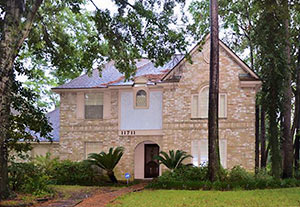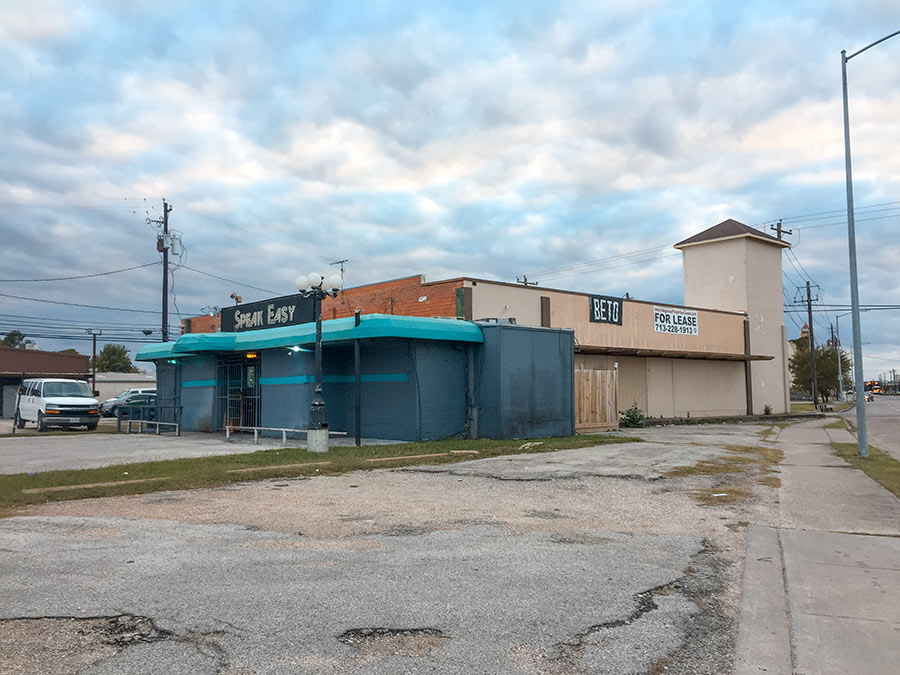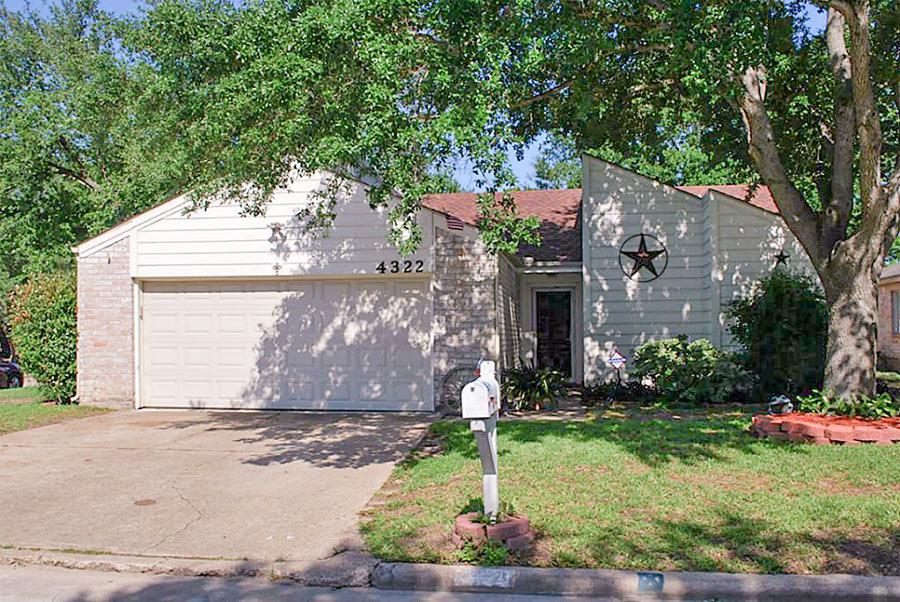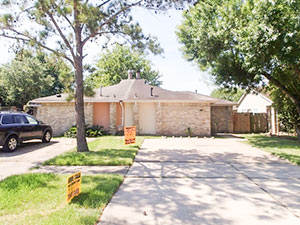YOU’RE NOT FROM TEXAS, BUT TEXAS WANTS YOUR MONEY ANYWAY  Wondering why a bunch of out-of-towners are afoot hunting down $214,000 homes (such as the Lakewood Forest number pictured here) to buy as investments in Houston — just as locals start to feel a bit jittery about the possibility of coming oil-price-drop aftershocks? The sudden outsider enthusiasm may stem in part from a roundup of “Best Buy Cities” published last month by Forbes, which purports to tell folks with extra cash on their hands Where To Invest In Housing In 2015. Number 3 on the list, which magazine writers in concert with a firm called Local Market Monitor came up with after exploring data on job opportunities and population increases — is Houston. But all 5 major Texas cities make it to the Top Ten. What, oil prices are falling? That just means you shouldn’t buy a home in Midland, declares the quoted expert, whose first name and credentials the article doesn’t bother to identify. (It’s Ingo Winzer, Local Market Monitor’s founder, who lives in North Carolina.) The list is revised annually, though between those efforts Forbes is generally busy producing a steady stream of clickbait ranking cities on various other criteria. [Forbes] Photo of 11711 Cedar Point Ct.: HAR
Wondering why a bunch of out-of-towners are afoot hunting down $214,000 homes (such as the Lakewood Forest number pictured here) to buy as investments in Houston — just as locals start to feel a bit jittery about the possibility of coming oil-price-drop aftershocks? The sudden outsider enthusiasm may stem in part from a roundup of “Best Buy Cities” published last month by Forbes, which purports to tell folks with extra cash on their hands Where To Invest In Housing In 2015. Number 3 on the list, which magazine writers in concert with a firm called Local Market Monitor came up with after exploring data on job opportunities and population increases — is Houston. But all 5 major Texas cities make it to the Top Ten. What, oil prices are falling? That just means you shouldn’t buy a home in Midland, declares the quoted expert, whose first name and credentials the article doesn’t bother to identify. (It’s Ingo Winzer, Local Market Monitor’s founder, who lives in North Carolina.) The list is revised annually, though between those efforts Forbes is generally busy producing a steady stream of clickbait ranking cities on various other criteria. [Forbes] Photo of 11711 Cedar Point Ct.: HAR





One of reason is you can buy a house in Houston and profitably rent it out. I bought a few single family homes in Houston before I even moved here. A management company rented them. Collected rent. Paid the bills. Sent me a check for the difference.
.
I manage them myself now (still own them). I’ve seen them. A grand total of 3 times. And didn’t see them the first time till a few years after buying them.
If you can buy a house for less than 100x it’s monthly rent, you can profitably rent it out, no question.
If these investors are renting their homes, they’ll probably make a profit. But if they’re buying to flip, they are a bit late to that party. I find it a bit troubling that such a large number of homes in Houston have been purchased by investors. Most regular buyers just can’t compete with cash customers. It would be interesting to know the owner occupancy rate of Houston homes in various neighborhoods, if that can be determined. I bet it would be an eye-opener.
I tried to do some research into owner occupancy versus investment in my old neighborhood. Basically I looked at the HCAD property records. If the property owner was a person, and their mailing address was the property address, I assumed it was an owner occupied house. If the owner was a corporation, or an individual whose address was not the property address, I assumed it was an investment. (Not necessarily a correct assumption, but probably close). I got about a third of he way through the properties before I got bored and gave up. But if I were a number cruncher paid to do this kind of research, I don’t see why it couldn’t be done.
.
That said, I, too, find it disconcerting that so many out of town investors come here to buy houses. I am really worried that they won’t necessarily take care of these properties the way they should. After all, if it’s a house you’ve never seen in a neighborhood or city you never go to, why would you care if it’s a nuisance? To you, it’s just a check and an occasional phone call.
Impossible than anyone outside of Houston is buyng properties in this city to rent – haven’t they all read the apocalyptic forecast from the O&G industry ? Pretty soon this city is going to be a ghost town !
Midland is still plenty strong for investing if you are looking at rentals. It is in a different category than the Dakotas. They have a long-time boom-bust town. If you are not looking to rent, Midland is never a good investment. Even during a boom where there is no inventory the housing prices dont shoot up. There is just too much land; it creates a ceiling for prices.
yes its awesome to have someone buy the home next to mine and rent it out…..as an investment….
even better is that they are from some other state, a carpetbagger and a slumlord……how cool are you…and plan to never even see it….Most people have a negative opinion of slumlords, blaming them for declining property values. slumlords leech away the wealth of the poor with little regard to future generations or the local people. but what a way to make a living ……
Zaw: I have my office address as the address for all my properties (even ones I live in). And I’ve changed the name to ‘current owner’ since it was a bit creepy that someone could easily see your homes and where you live on a public website.
.
But I see your point in that not many people do that. Or at least not enough to drastically throw off your numbers. Back to topic: Couldn’t you download all the records to a database, then simply run a script to separate owner occupied vs. rental properties based on criteria like the one you came up with? I did something similar when I was trying to get a database of owners of rental property so I could see who owned what and hassle them to sell.
.
And I don’t know that it’s correct to assume that non occupied owners will let a property fall apart more than an owner occupied. I live a few blocks down from owners that don’t do anything to their home. At least with a rental property, you have a financial incentive to keep it running well (to keep a tenant, to attract a tenant, or to get the most you can from a tenant).
.
I know I personally put much more effort into my rental properties than my own home. It drives my wife crazy. “Why don’t you spend that much time on OUR house?” I tell her “fixing up our place doesn’t provide the same cash flow return”. (which fiscally a correct answer, it doesn’t cause me to win that argument :)
@Cody
How do you change your HCAD listing to Current Owner.
Scanning the appraisal district records for potential renter households in single family areas is much easier if you have access to GIS and the appraisal district’s shapefiles (linked to the actual data in the records). Then you can quickly pull all the accounts, and scan for two different things: (1) different address on taxpayer vs. property and (2) who hasn’t taken an exemption such as the homestead exemption.
True, you can’t make the argument that owner occupied houses are less susceptible to neglect than investment properties. It’s a logical assumption, but over-simplified. It doesn’t account for people who are too poor to make desperately needed repairs to their houses, and it doesn’t account for the mentally ill (like you see on “Hoarders”). There is a surprising number of those.
I would argue however that investment-neglect and owner-occupied-neglect are two totally different beasts. Investors neglect properties either because they’re inexperienced and stupid, or because they choose to. To me that’s more evil, and it bothers me a lot more. To look at it a different way: the City or a Nonprofit can help grandma fix up her house. MHMRA and HPD (and non profits) can help the mentally I’ll get the care they need and fix their homes. But how do you get a slum lord who may not even live in the state to fix an investment property if he doesn’t want to?
Progg, if you go to HCAD and click on Forms at the top I believe it’s the “Internet Opt Out” one. Will be at the top of the “General Information” list or on the left in the “Most Requested Forms” section. I can’t get any of them to open right now to verify though.
Here’s an interesting article from last October about the downside of having a private equity firm as a landlord: http://www.nakedcapitalism.com/2014/10/invitation-homes-tenant-abuse-shows-incompetence-well-malfeasance.html. It touches on many of ZAW’s points.